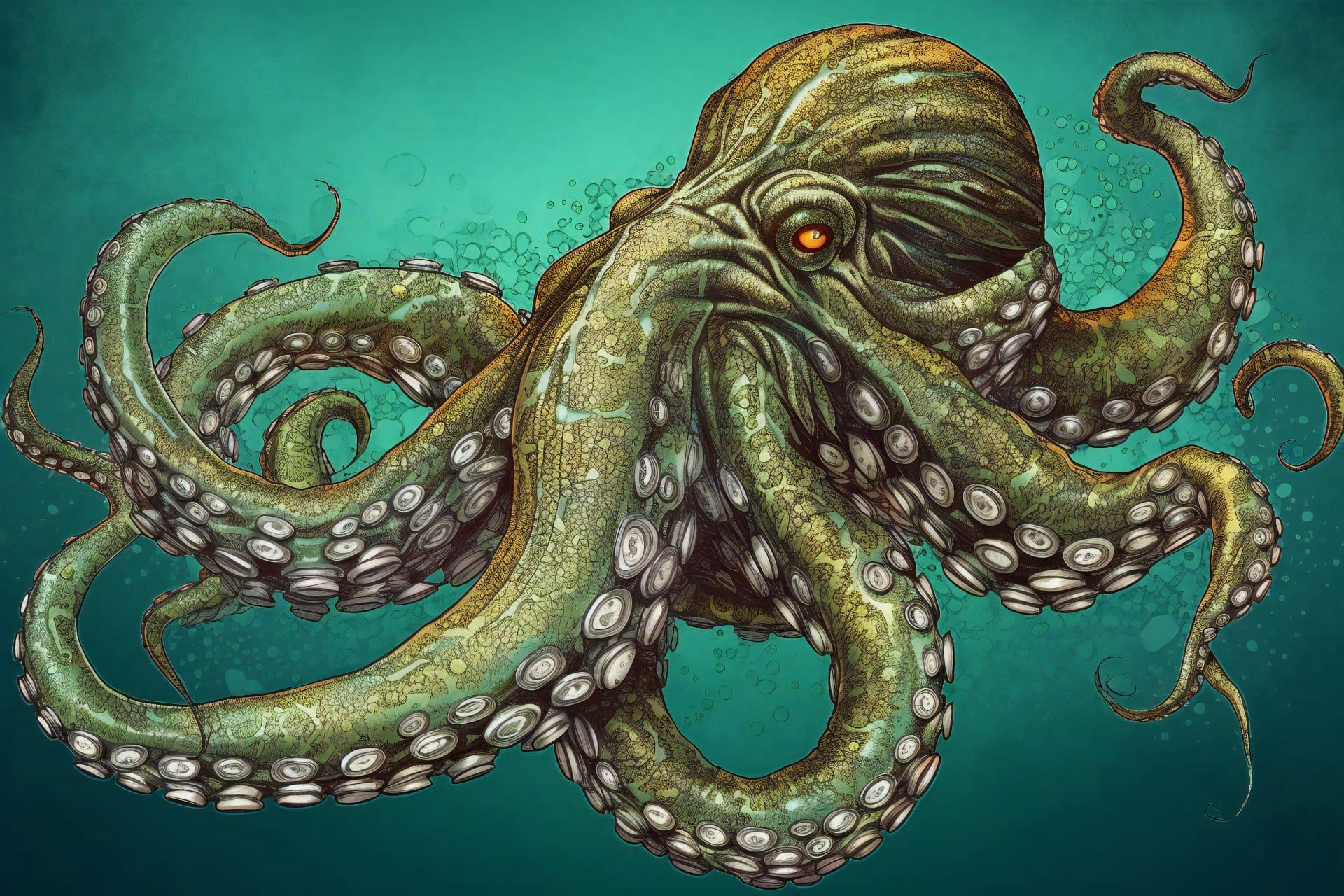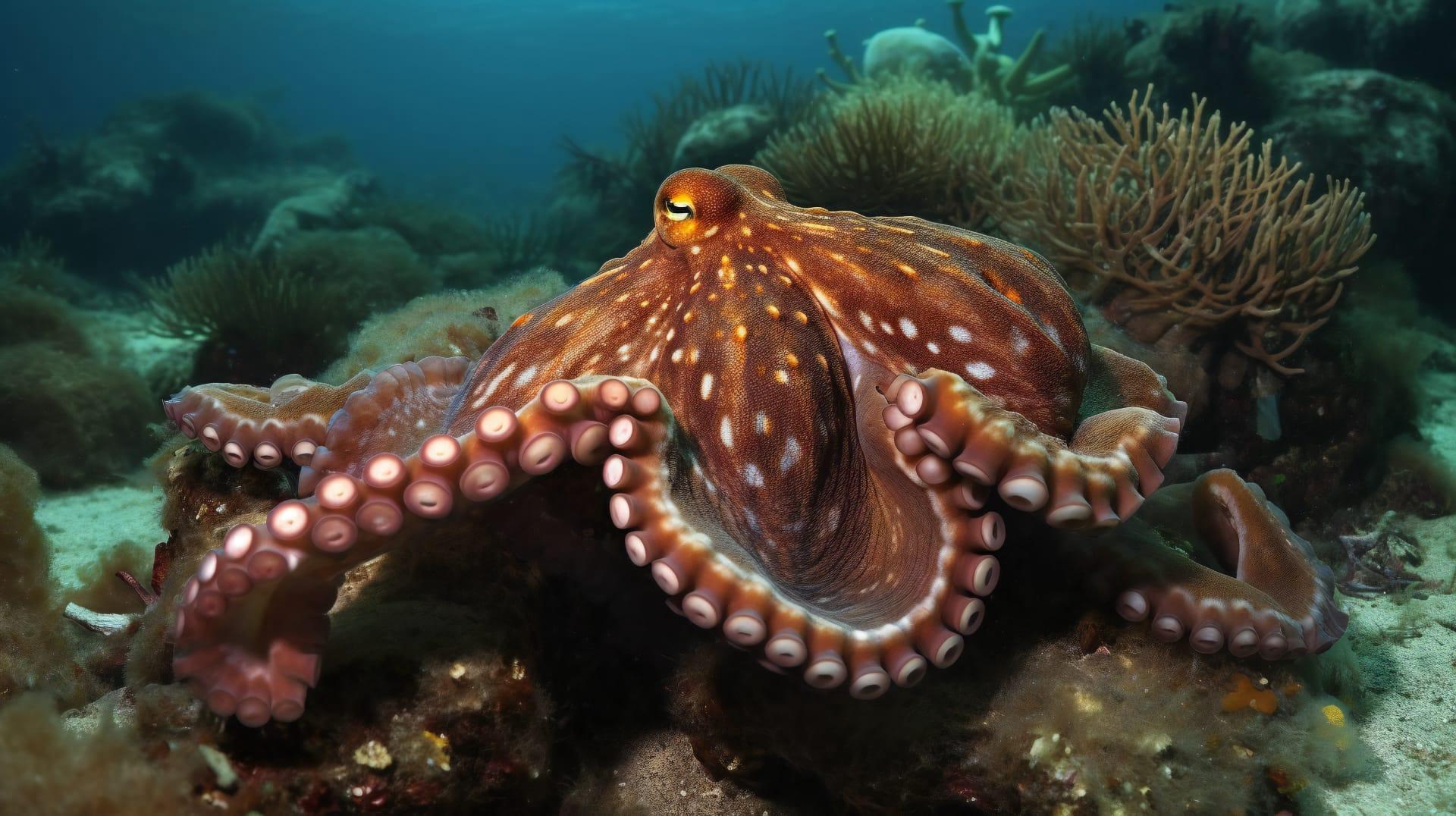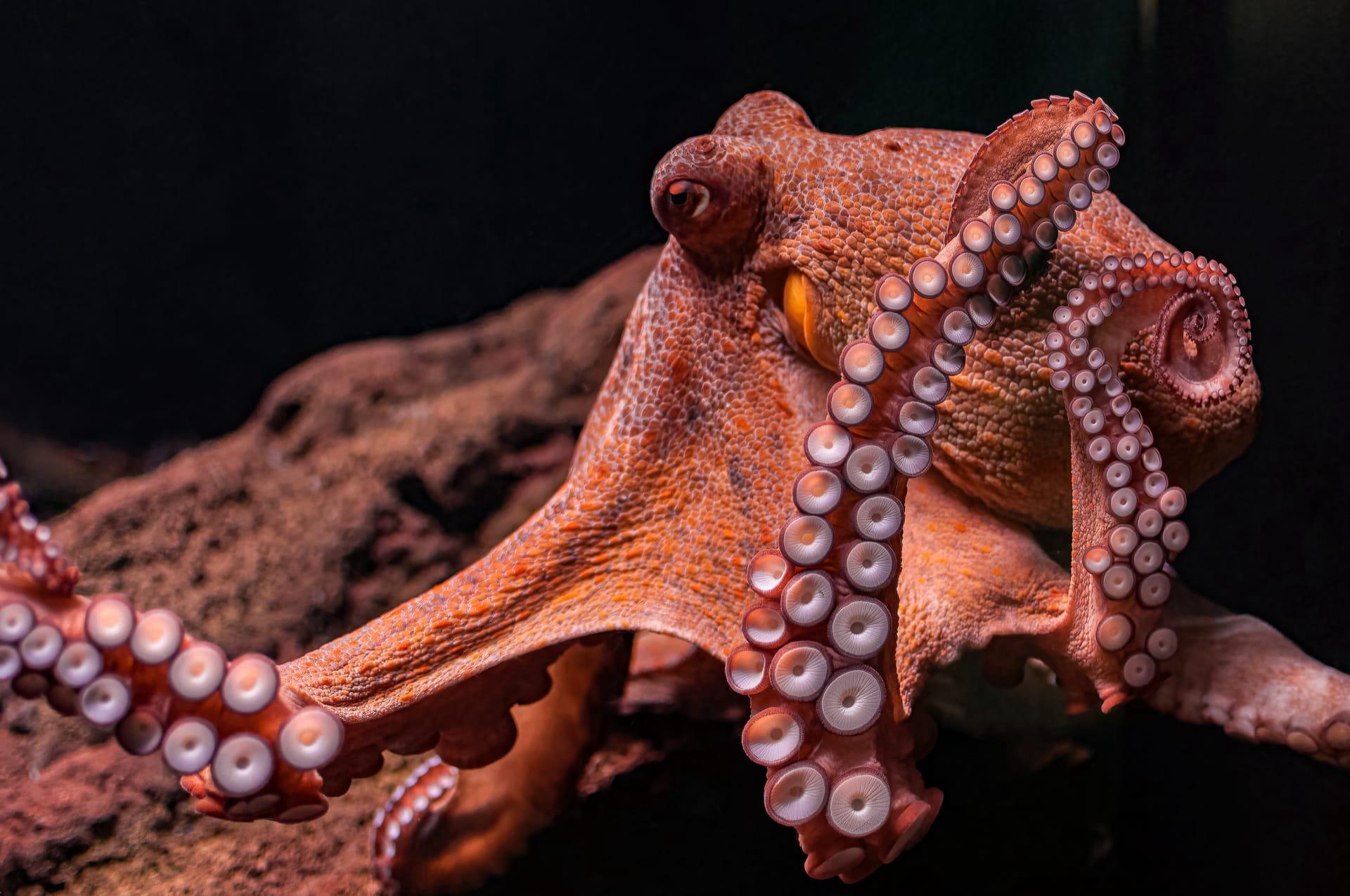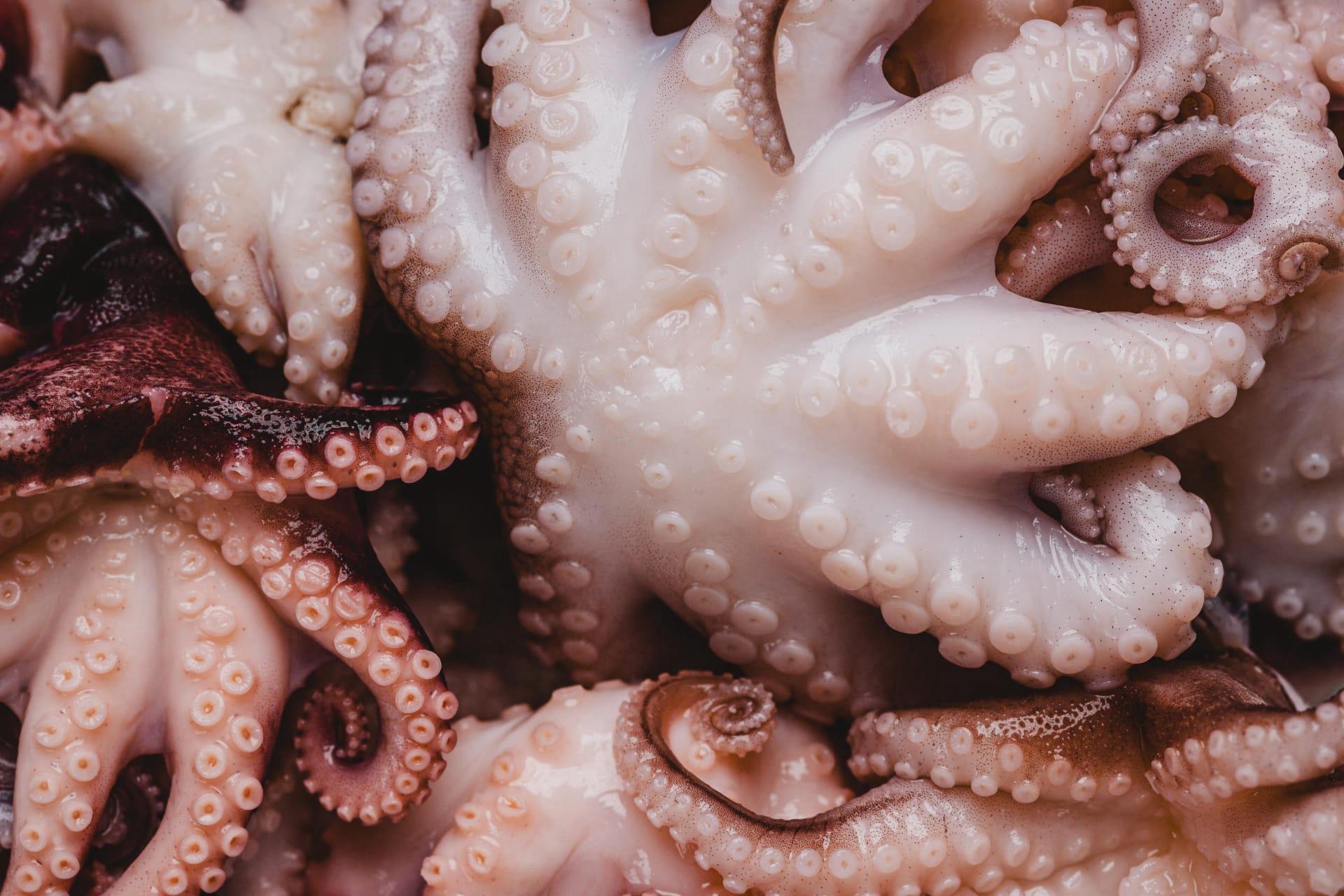Octopus Trivia
- Home /
- Trivia Question /
- Animal /
- Octopus Trivia
1
Question: How many hearts does an octopus have, and why?
Answer: An octopus has three hearts. Two pump blood to the gills, while the third pumps it to the rest of the body. This unique system helps them efficiently transport oxygen, especially important since their blood, which uses the protein hemocyanin for oxygen transport, is less efficient than hemoglobin-based blood.
Question: Can octopuses really change their color and texture? How do they do it?
Answer: Yes, octopuses can change both color and texture. They have specialized cells called chromatophores that expand or contract to show different colors, and papillae that change skin texture. This ability is used for camouflage, communication, and predator deterrence. The changes are controlled by their nervous system, allowing quick and adaptive responses.

2
Question: Do octopuses have a structured brain like humans?
Answer: While octopuses have a central brain, it's quite different from human brains. Their central brain encircles their esophagus and is part of a larger nervous system that includes large neurons in each arm, allowing semi-independent arm control. This decentralized system is why an octopus can perform complex tasks with its arms.
Question: Are octopuses solitary or social creatures?
Answer: Octopuses are generally solitary animals. They hunt alone and only come together for mating. However, there have been some observations of octopuses engaging in complex interactions, which suggests potential social behaviors, but these are exceptions rather than the rule.

3
Question: How do octopuses reproduce and what happens afterwards?
Answer: Octopus reproduction involves the male placing a sperm packet into the female's mantle cavity. After fertilization, females lay eggs and often guard them until they hatch, forgoing food. Post-hatching, most females die, a phenomenon known as semelparity. This life cycle emphasizes a single, devoted reproductive effort.
Question: What is the lifespan of an octopus?
Answer: The lifespan of octopuses varies by species. Smaller species may live as little as six months, while larger species like the Giant Pacific Octopus can live up to five years. Their lifespan is generally short, and most die after breeding, linking their life cycle closely with their reproductive cycle.

4
Question: How intelligent are octopuses and what evidences their intelligence?
Answer: Octopuses are highly intelligent. They exhibit complex behaviors like problem-solving, tool use, and short- and long-term memory. Studies have shown their ability to navigate mazes, unscrew jars, and escape from enclosures. Their intelligence is likely linked to their need to hunt and adapt in diverse environments.
Question: Can octopuses feel pain?
Answer: Yes, octopuses can feel pain. They have a complex nervous system, capable of processing pain and responding to it. This is evident in their avoidance of harmful stimuli and their sophisticated behaviors that indicate a level of consciousness.

5
Question: What do octopuses eat and how do they hunt?
Answer: Octopuses are carnivorous, primarily feeding on crabs, mollusks, and fish. They use their arms and suction cups to capture prey, and their beak to break through shells. Their hunting strategy involves stealth and intelligence, often using their ability to camouflage and ambush prey.
Question: Can octopuses regenerate lost limbs?
Answer: Yes, octopuses can regenerate lost limbs. This regeneration process is not instant but can be quite rapid, depending on the species and environmental conditions. The new limb gradually grows back to full functionality, showcasing their remarkable ability for physical recovery.